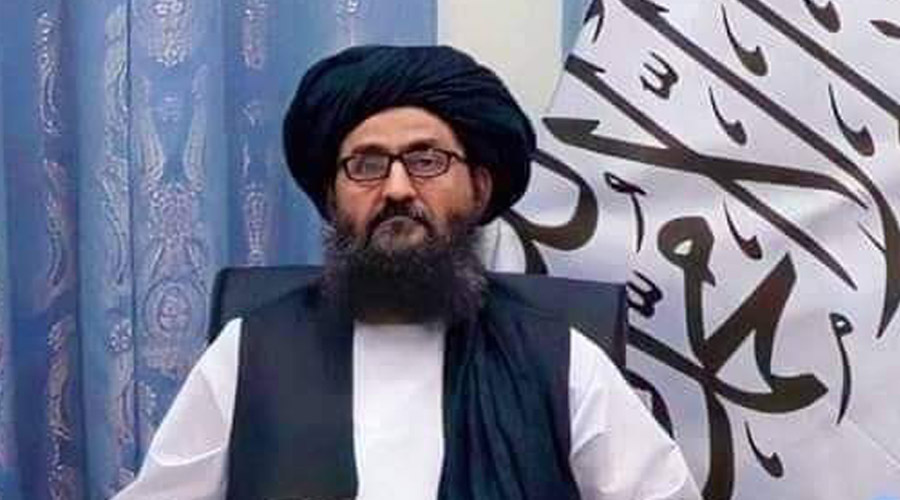The Taliban’s top leaders have spent years on the run, in hiding, in jail and dodging American drones. They are now emerging from obscurity after a 20-year battle, but little is known about them or how they plan to govern.
As they take charge of Afghanistan’s government and a nation of 38 million people, the Taliban’s leaders have tried to signal that they are more worldly and tolerant than their predecessors in the 1990s, willing to work with women and urging people to get back to their jobs without fear of reprisals.
But the question remains: Have they really cast off an extremist ideology that carried them through two decades of war, or is this all a ruse designed to win global approval? What is known about the movement’s leaders yields some clues.
Mawlawi Haibatullah Akhundzada
An Islamic legal scholar, he is described as a spiritual guide for the movement and has long been a proponent of suicide bombing.
His son trained to be a suicide bomber, and at 23 blew himself up in an attack in Helmand Province. That raised Akhundzada’s profile in the movement, said Carter Malkasian, the author of The American War in Afghanistan.
When the previous Taliban supreme leader, Mullah Akhtar Muhammad Mansour, was killed in a US drone strike in 2016, Akhundzada emerged as a compromise candidate. “They needed somebody more consensual, somebody more able to keep the different factions together,” said a leading scholar of the Taliban, Antonio Giustozzi.
Known as a pragmatist, Akhundzada overruled the group’s political leaders and allowed the military wing to step up attacks on Afghan cities, Giustozzi said.
Sirajuddin Haqqani
The son of a celebrated mujahideen figure who oversees a sprawling web of fighters and religious schools from a base in Pakistan, Haqqani, 48, has led much of the Taliban’s recent military efforts.
His Haqqani network, known for its close ties to the Pakistani intelligence service, was the most dogged opponent of the US presence in Afghanistan. It was responsible for hostage-taking of Americans, complex suicide attacks and targeted assassinations.
Haqqani and his network also have some of the strongest and longest-running ties to al Qaida, including helping Osama bin Laden escape from his headquarters in Tora Bora after the US invasion in 2001.
His younger brother, Anas Haqqani, has been part of peace negotiations in Doha and was in Kabul on Wednesday for meetings with former President Hamid Karzai and Abdullah Abdullah, the chairman of the Afghan delegation to peace talks. He was accompanied by the speaker of Afghanistan’s upper house of parliament.
Abdul Ghani Baradar
One of the movement’s early joiners, Baradar served as principal deputy to the Taliban’s founder, Mullah Muhammad Omar.
Baradar led the movement’s military operations until his arrest by Pakistan, under US pressure, in 2010. Under his leadership, the units were notable for their skillful use of guerrilla
tactics against British and USforces.
After three years in a Pakistani prison and several more under house arrest, he was released in 2019, under more US pressure, to help negotiate the peace deal reached with the Trump administration in 2020.
In the course of the negotiations, he developed a “warm” relationship with Zalmay Khalilzad, the US envoy to the talks, according to Malkasian.
In the course of the negotiations he developed a “warm” relationship with America’s envoy at the peace talks, Zalmay Khalilzad, according to Malkasian. On Tuesday he entered his hometown, Kandahar, the birthplace of the Taliban, to a triumphant welcome from its citizens.
While the Taliban leadership has unquestionably grown more sophisticated, it will take a lot more than words to convince their legion of sceptics.
Joscelyn, for one, says the group remains the extremist organisation it always was.
“They haven’t changed their ideology and their ideology is this austere strict version of Islam that they’ve had since the 1980s,” he said. “Women are only going to have the rights as defined under their version of Islam. They are back to square one.”
Mullah Muhammad Yaqoub
The son of Mullah Omar, Yaqoub has gained importance for his work with the Taliban’s military forces, though he is not expected to challenge Haqqani for the No. 2 spot in the hierarchy.
He is considered less dogmatic than his father, and overcame a challenge from a rival for leadership of the Taliban’s military wing.
New York Times News Service










